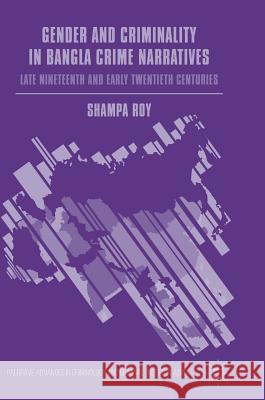Gender and Criminality in Bangla Crime Narratives: Late Nineteenth and Early Twentieth Centuries » książka
topmenu
Gender and Criminality in Bangla Crime Narratives: Late Nineteenth and Early Twentieth Centuries
ISBN-13: 9781137515971 / Angielski / Twarda / 2017 / 247 str.
This book examines diverse literary writings in Bangla related to crime in late nineteenth and early twentieth century colonial Bengal, with a timely focus on gender.











